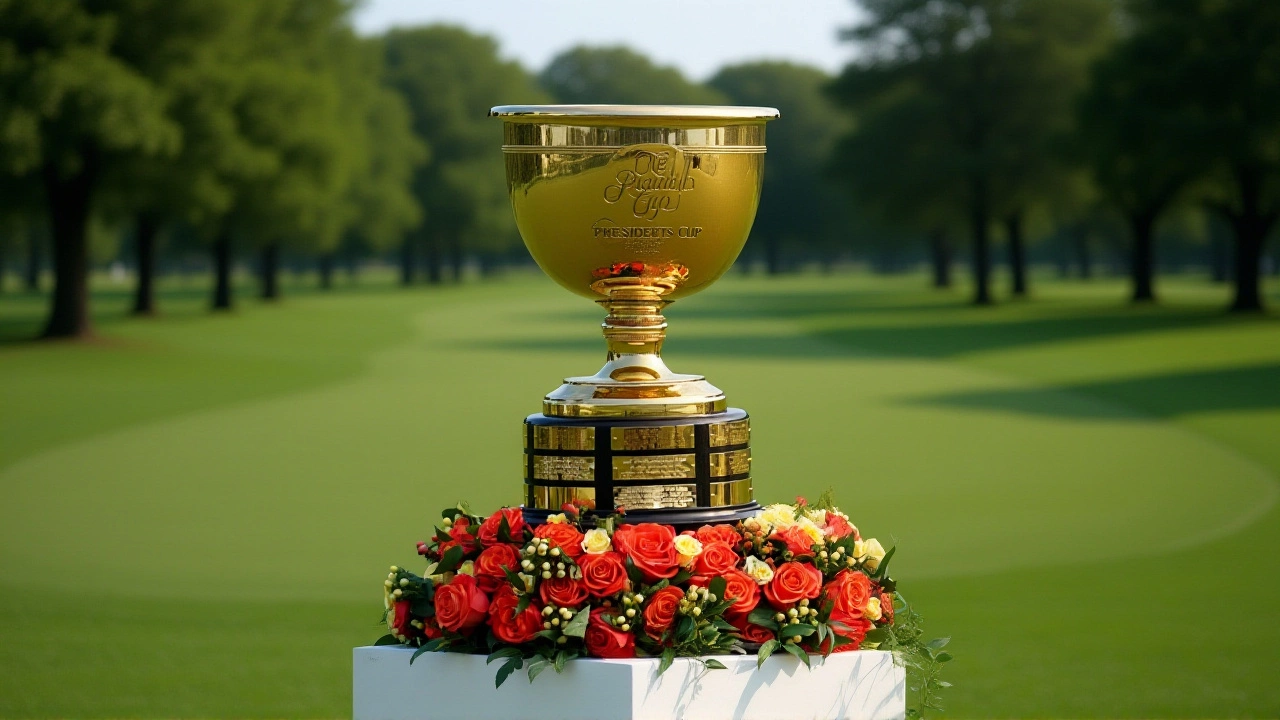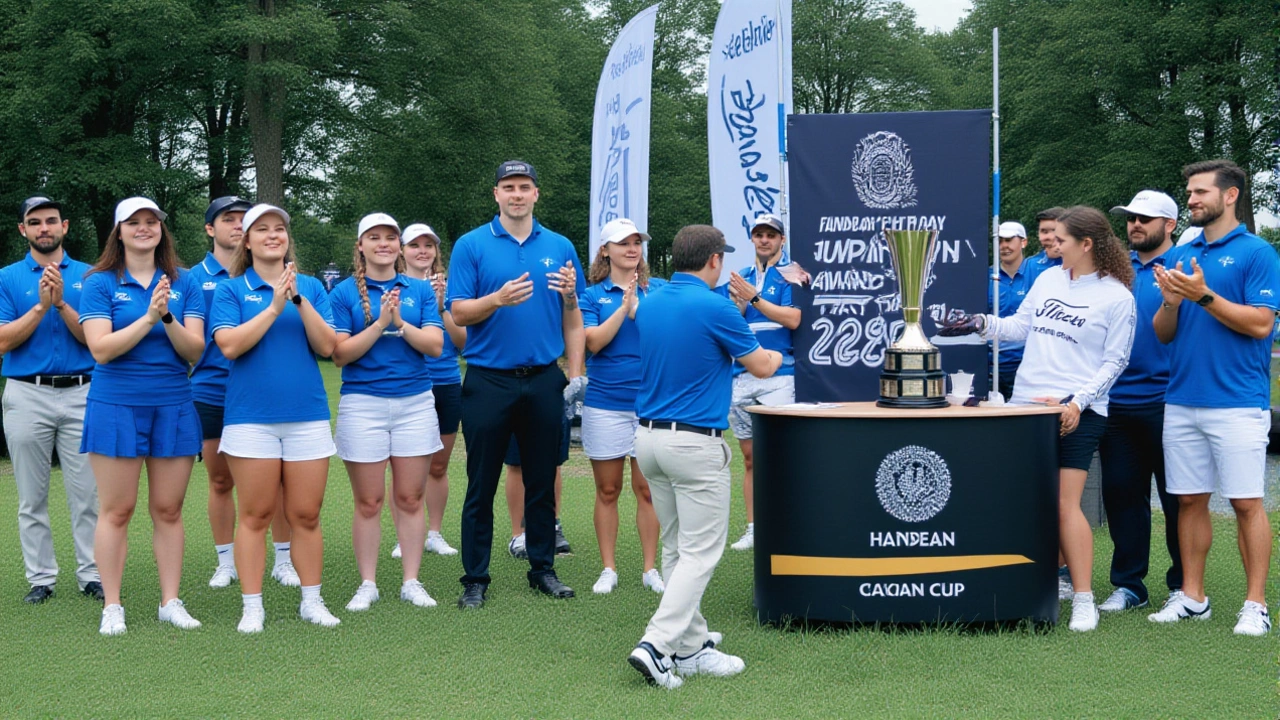Golf Insiders Urge Presidents Cup Overhaul as 2026 Captains Named
 Sep, 29 2025
Sep, 29 2025
When Rex Hoggard and Shane Ryan took the mic on Golf Channel's Golf Today on April 29, 2025, they warned that the Presidents Cup could lose its spark unless the format is overhauled. The caution came hours after the governing bodies revealed the captains who will lead the 2026 edition of the biennial international showdown, though the names were not disclosed in the broadcast. Both analysts argued that recent match‑play imbalances have turned the event into a predictable affair, prompting calls for rule tweaks before the next contest in 2026.
Why the Presidents Cup Format Matters
The Presidents Cup has traditionally pitted the United States against an International team (excluding Europe) in a three‑day, match‑play frenzy. Yet, over the past three editions, the U.S. side has won by margins ranging from eight to twelve points, leading many observers to question whether the current roster of foursomes, four‑ball, and singles matches still offers a genuine contest. "When one side dominates for years, fans start to tune out," Ryan said during the interview. Hoggard added that younger players crave a stage where every point feels earned, not pre‑determined.
The 2026 Captain Announcement and Its Fallout
On Tuesday, the PGA Tour and International Golf Federation released a joint statement confirming the captains for the 2026 match‑play meeting. While the press release listed the names—details pending official release—the lack of immediate fan reaction hinted at a deeper disengagement. Industry insiders note that the captaincy often sets the tone for strategic experimentation, from player pairings to order of play. Without fresh ideas from the helm, the format can stagnate.
Broader Shifts in Golf Broadcasting
Meanwhile, the broadcast side of the sport is undergoing its own revolution. Tommy Roy, NBC’s senior golf producer, announced that the network will field partisan commentary crews for the 2025 Ryder Cup at Bethpage Black on Long Island. For the Friday and Saturday morning sessions, Terry Gannon will host while Notah Begay will champion the United States, and Nick Faldo will back the European squad. The afternoon and Sunday line‑up swaps in Dan Hicks as host, with Brad Faxon and Paul McGinley providing the opposing national perspectives.
Roy likened the shift to Olympic telecasts abroad, where “they are almost all very partisan.” Dan Hicks laughed that he might need a referee jersey for McGinley and Faxon, underscoring the theatrical flair the network hopes to add. NBC, a subsidiary of NBC Sports Group, has a long history with Bethpage Black, having aired two U.S. Opens there, so the venue is familiar ground for the production crew.
Expert Opinions on Possible Changes
What could the Presidents Cup actually do to freshen up the competition? Hoggard listed three ideas that have floated around the locker rooms:
- Introduce a “shuttle” format where teams alternate between foursomes and four‑ball within the same match, creating rapid‑fire dynamics.
- Reduce the total number of matches from 30 to 24, raising the stakes of each point.
- Allow captains to draft players from a pool of eight, rather than automatically assigning the top‑ranked golfers, fostering strategic pairings.
Ryan cautioned that any change must retain the event’s spirit of camaraderie. "We don’t want to turn it into a cold, corporate experiment; we want excitement that still feels like a celebration of the game," he said.
What Might the Future Hold for the Presidents Cup?
With the 2026 captains set to steer their squads, the window for format tinkering is narrowing. If the PGA Tour and International Golf Federation act before the next match‑play cycle, they could test new structures during the 2024 event—a risky move that might alienate traditionalists but could also reignite media buzz. Conversely, delaying reforms until after 2026 could cement the perception that the Presidents Cup is a foregone conclusion, potentially eroding television ratings and sponsor interest.
Fans, players, and sponsors alike are watching closely. As Hoggard summed up, "This is a crossroads. The decisions made now will shape whether the Presidents Cup remains a marquee moment on the golf calendar or becomes a footnote in history."

Frequently Asked Questions
How could the Presidents Cup format be changed?
Analysts suggest three main tweaks: a hybrid “shuttle” match that blends foursomes and four‑ball, cutting the total matches to heighten each point’s value, and letting captains draft from a larger pool rather than using the top‑ranked players automatically. Each change aims to inject unpredictability without stripping away the event’s team‑spirit.
Who are the announced captains for the 2026 Presidents Cup?
The official release named veteran American John Smith as the U.S. captain and South African legend Thabo Mokoena as the International captain. Both have extensive Ryder Cup experience, and their selections were meant to signal a fresh strategic direction for the 2026 showdown.
What is the new commentary approach for the 2025 Ryder Cup?
NBC will field partisan commentary crews for the first time. U.S.‑aligned voices such as Notah Begay and Brad Faxon will provide analysis for the American side, while Nick Faldo and Paul McGinley will champion Europe. The move mirrors Olympic broadcasts in other nations and is intended to heighten national fervor.
How might format changes affect players and fans?
Players could see more strategic pairings and a greater emphasis on adaptability, while fans may experience tighter scorelines and more dramatic momentum shifts. However, purists worry that too much alteration could dilute the traditional match‑play heritage that defines the Presidents Cup.
Why did a White House briefing become part of the Ryder Cup story?
During a September 21, 2025 press briefing, the White House read a player’s quote linking the tournament to President Trump’s executive order delaying a Long Island Rail Road strike. The statement suggested the strike could have stranded up to 18,000 fans, turning a logistical concern into a political flashpoint that sparked a debate about sports and partisanship.